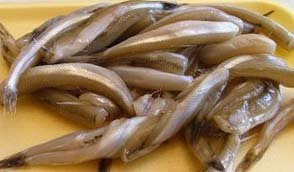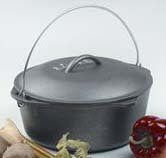The ethics of sustainability are more difficult to achieve with purchased food. If you are a conscientious person, eating most foods requires a considerable amount of selective forgetting. Every bite completes a long chain of events, many of them with ethical coloration. Since it is unpleasant to ingest sins and indiscretions with one’s food, the natural thing is to overlook them. But when we see ourselves as part of the greater scheme of things, it is possible and good to stop sometimes and look that forkful in the eye (or whatever part has been impaled). Here are some ethical questions to consider over dinner.
1. Has the food required the sacrifice of another animal’s life?
2. Was the individual food animal treated humanely before death and was it killed humanely?
3. If the food required restraint of an animal (as, for example, with eggs and milk), was that humanely managed?
4. If harvesting a wild animal was involved, did the process endanger the survival of the species? Were only the animals to be eaten killed?
5. Were whole ecosystems damaged in order to grow a particular food crop?
6. Were people enslaved, maltreated, deprived of their own food choices, or subjected to bad governance in order to grow or process the crop?
7. Is the crop practice appropriate to the whole ecosystem, or does it cause erosion, overfertilization of water sources, greenhouse gas emission, accumulation of toxic chemicals in wildlife and humans, loss of gene plasm diversity in the crop species, air or water pollution?
8. Is the energy cost of processing and transporting the food excessive for the little food value contained in it?
We who seek sustainability are making more and more ethical choices about food. It may restrict the variety of things we can eat or be more expensive but at some point the food looks back at you from the fork and you have to make that next step. We gave up veal a couple of decades ago and never even consider fois gras. Lately we’ve been seeking out meat from grass-fed animals and buying “Amish” poultry because they are reputed to be better treated. We try to buy as much food that is produced locally as is feasible (if it is organic, even better) and look carefully at the selection of fair trade coffee and chocolate. In the process, we change our taste for food so that the unethical choices don’t even look appealing any more.
Michael Pollan certainly laid out a lot of this for us in The Omnivore's Dilemma. Reading that was a life-changing experience for many. Now Mark Bittman, writing in the New York Times, hits us with the bad news about fish.
Here is the short version: Worldwide, we have almost depleted the populations of the most desirable wild fish. In 2003, 32% of populations had crashed, 39% were overfished, and the remaining 29% were "fully exploited", at the limits of sustainability. Even more troubling, industrial fish farming is threatening the stocks of the smaller fish that are the food of the larger ones like salmon and tuna. Huge quantities are being ground up to feed to farmed salmon. Salmon and shrimp farms cause immense water pollution (a farm of 200,000 salmon produces as much fecal matter as 60,000 humans) and despite heavy use of antibiotics, pose a disease threat to wild populations. Bittman proposes that we should avoid farmed fish (though tilapia can be farmed sustainably, he dismisses it as tasteless, which has been my experience) and eat the smaller ones, like sardines and anchovy.
I've been eating more canned sardines and use canned wild salmon, but what about fresh fish? One option is to eat more locally - freshwater fish native to this continent. I love walleye though it is expensive and somewhat seasonal. But in following Bittman's "small fish" lead, I remembered smelt.

The Rainbow Smelt (Osmerus mordax) is not native, but has been established in the upper Midwest freshwater lakes, originally seeded as food for salmon. They are still caught by locals during "smelt runs", typically in March-April. But they are available and cheap (the pound I bought cost $3.49) in the freezer as headless and dressed individually frozen fish.
 These little babies are eaten whole and can be panfried or baked. But deep-fried smelt are popular in many Asian cuisines and lakeside fish restaurants. And the bones are good for you. As you crunch, think sustainability. Have your friends over - one pound will feed 4, or 6 with the fried vegetable sides and a salad. There are many possibilities for the breading (including the classic flour-egg/milk-bread crumbs or cornmeal), but I think a very light tempura batter is nicer.
These little babies are eaten whole and can be panfried or baked. But deep-fried smelt are popular in many Asian cuisines and lakeside fish restaurants. And the bones are good for you. As you crunch, think sustainability. Have your friends over - one pound will feed 4, or 6 with the fried vegetable sides and a salad. There are many possibilities for the breading (including the classic flour-egg/milk-bread crumbs or cornmeal), but I think a very light tempura batter is nicer.Deep-fried Smelt
Tempura batter: combine 1 egg yolk with 2 cups of ice-cold water and 1/4 t baking soda. Stir in 1 2/3 cups of flour. This should produce a thin batter that is a little frothy.
Drop dressed, thawed and drained smelt into flour (may be seasoned) on a plate, shake off the excess, then quickly drop one at a time into the batter, retrieve with tongs (edit: on trying this again, I found that using one's hands are the easiest and most effective way to take the fish from the batter, though messy), then drop into hot oil. Oil should be deep enough to submerge the fish completely. Do not try to cook more than 3 or 4 (edit: or about 6) at once. Remove with a slotted ladle or frying strainer or tongs after each is light brown (2-4 minutes). Place in pan in a 200° oven while finishing the batch. Serve immediately with any preferred sauce, from mayonnaise-based tartar sauce to Asian soy sauce-based, or just offer lemons to squeeze. Note that this recipe has not included salt unless it was added with the flour. (Edit: a tomatillo/green chile/cilantro salsa or Indian chile/cilantro green sauce are excellent with this and the vegetables. Think pakora.)
Great additions: sweet potato rounds, half mushrooms, cauliflower buds, onion rings, or any vegetable that is not too wet and can stand up to this treatment. Or - make potato (French) fries - the batter makes them wonderful. Dip them in the batter without the preliminary flouring and fry separately from the fish. Remember not to crowd - if the temperature of the oil drops, they'll be oily.
Notes on deep-frying: the secret of delicious fried food, crisp on the outside, moist inside and not oily, lies in using the correct oil temperature. This is usually stated as 325-375° but keeping to the higher temperature is better. Use a kitchen thermometer. You should use only oils that can stand up to the heat. This is dependent on their smoke points - no oil with a smoke point under 400° should be used. I prefer peanut oil because it has a neutral flavor; I find that canola oil develops an unpleasant odor when heated to a high temperature.
 There is real danger in heating oil on the stove - you can be severely burned from splashes and it should never be left unattended or allowed to heat to the oil's smoke point. One way to avoid trouble is to use a cast-iron Dutch oven for deep-frying. The steep sides prevent splashing. Don't fill any fuller than necessary. I usually use about a quart of oil in my 7 qt pan. Oil can be reused once if filtered and stored in the refrigerator.
There is real danger in heating oil on the stove - you can be severely burned from splashes and it should never be left unattended or allowed to heat to the oil's smoke point. One way to avoid trouble is to use a cast-iron Dutch oven for deep-frying. The steep sides prevent splashing. Don't fill any fuller than necessary. I usually use about a quart of oil in my 7 qt pan. Oil can be reused once if filtered and stored in the refrigerator.
Tempura batter: combine 1 egg yolk with 2 cups of ice-cold water and 1/4 t baking soda. Stir in 1 2/3 cups of flour. This should produce a thin batter that is a little frothy.
Drop dressed, thawed and drained smelt into flour (may be seasoned) on a plate, shake off the excess, then quickly drop one at a time into the batter, retrieve with tongs (edit: on trying this again, I found that using one's hands are the easiest and most effective way to take the fish from the batter, though messy), then drop into hot oil. Oil should be deep enough to submerge the fish completely. Do not try to cook more than 3 or 4 (edit: or about 6) at once. Remove with a slotted ladle or frying strainer or tongs after each is light brown (2-4 minutes). Place in pan in a 200° oven while finishing the batch. Serve immediately with any preferred sauce, from mayonnaise-based tartar sauce to Asian soy sauce-based, or just offer lemons to squeeze. Note that this recipe has not included salt unless it was added with the flour. (Edit: a tomatillo/green chile/cilantro salsa or Indian chile/cilantro green sauce are excellent with this and the vegetables. Think pakora.)
Great additions: sweet potato rounds, half mushrooms, cauliflower buds, onion rings, or any vegetable that is not too wet and can stand up to this treatment. Or - make potato (French) fries - the batter makes them wonderful. Dip them in the batter without the preliminary flouring and fry separately from the fish. Remember not to crowd - if the temperature of the oil drops, they'll be oily.
Notes on deep-frying: the secret of delicious fried food, crisp on the outside, moist inside and not oily, lies in using the correct oil temperature. This is usually stated as 325-375° but keeping to the higher temperature is better. Use a kitchen thermometer. You should use only oils that can stand up to the heat. This is dependent on their smoke points - no oil with a smoke point under 400° should be used. I prefer peanut oil because it has a neutral flavor; I find that canola oil develops an unpleasant odor when heated to a high temperature.
 There is real danger in heating oil on the stove - you can be severely burned from splashes and it should never be left unattended or allowed to heat to the oil's smoke point. One way to avoid trouble is to use a cast-iron Dutch oven for deep-frying. The steep sides prevent splashing. Don't fill any fuller than necessary. I usually use about a quart of oil in my 7 qt pan. Oil can be reused once if filtered and stored in the refrigerator.
There is real danger in heating oil on the stove - you can be severely burned from splashes and it should never be left unattended or allowed to heat to the oil's smoke point. One way to avoid trouble is to use a cast-iron Dutch oven for deep-frying. The steep sides prevent splashing. Don't fill any fuller than necessary. I usually use about a quart of oil in my 7 qt pan. Oil can be reused once if filtered and stored in the refrigerator.